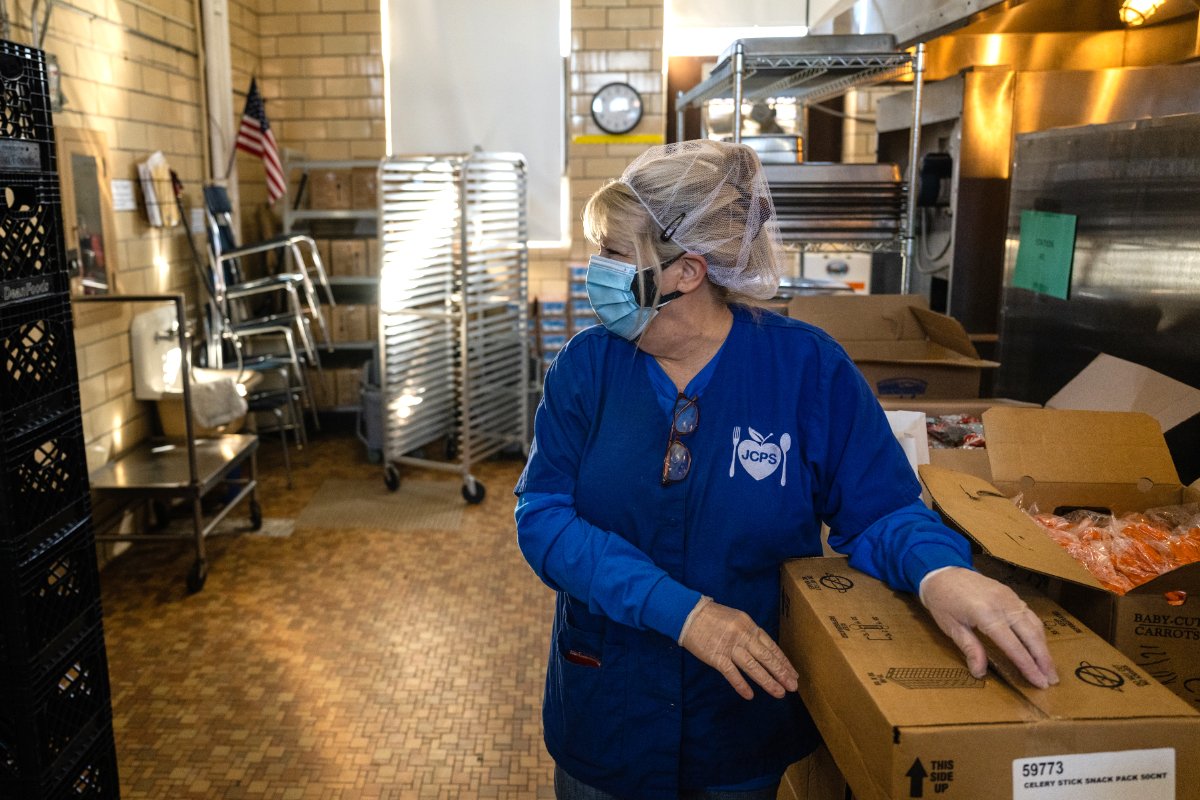June 27, 2022 update: On June 25, President Biden signed an extension of school meal waivers passed by Congress. The bill includes free meals for all students through the summer and extends some flexibilities through the 2022–23 school year. However, Democrats were forced to remove a provision that would have extended free meals to students in the reduced-price category in order to get enough Republican support for passage.
Since March 2020, despite unprecedented labor and financial constraints, school nutrition directors have largely been able to adapt their meal programs to meet the ongoing pandemic-driven challenges of getting healthy meals to the nearly 30 million children who depend on them. They’ve been able to swap ingredients to manage shortages of certain foods; package meals and send them home when necessary; and offer free meals to all students. But none of it would have been possible without U.S. Department of Agriculture (USDA) waivers that were authorized by Congress—and those are now set to expire on June 30.
“All of those flexibilities, collectively, will disappear on July 1,” said Jillien Meier, director of partnerships and campaign strategies for Share Our Strength’s No Kid Hungry campaign. She worries that the shift could be, “absolutely catastrophic for schools, but even more catastrophic for kids and their families.”
With the waivers in place, schools served more than double the number of summer meals in July 2020 and 2021 compared to previous years. Share Our Strength estimates that the expiration could mean that children will miss out on 95 million meals this summer and that schools will struggle to feed children during the 2022–2023 school year. And it’s one of thousands of organizations—including the powerful School Nutrition Association—that have been pushing Congress to extend the waivers for months.
In March, Republicans prevented the provision from being included in a spending bill, and they have since (with some exceptions) opposed new measures introduced by Democrats and championed by Senator Debbie Stabenow (D-Michigan). Agriculture Secretary Tom Vilsack has expressed support for extending the waivers, but the USDA’s authority is constrained by Congress. “This has become a partisan issue. We are not hearing [of] any compromises,” Meier said.
While those who oppose the extensions point to the fact that children are back in school, many parents are back to work, and meal programs should be able to go back to pre-pandemic operations, Meier said that in No Kid Hungry listening sessions, school nutrition directors are reporting that in some ways, they are facing even tougher challenges compared to two years ago. While quarantines and delivery meals have ended, COVID absences have meant lower participation in meal programs, which tightens budgets. Directors still can’t find many ingredients, and deliveries are inconsistent. With inflation soaring, they’re paying significantly more for food. According to a recent report from the Food Research & Action Center, more than half of districts surveyed identified supply chain disruptions, rising food prices, and labor shortages as significant challenges during the 2021–2022 school year. “There is nothing normal about the situation they’re operating under right now,” Meier said.
As the deadline approaches, many groups are turning to state policy advocacy as a pathway to expand school meal flexibilities in the absence of federal action. California, Maine, and Vermont have already passed laws guaranteeing universal school meals, while similar bills are moving forward in New York, Colorado, Minnesota, and Massachusetts.
